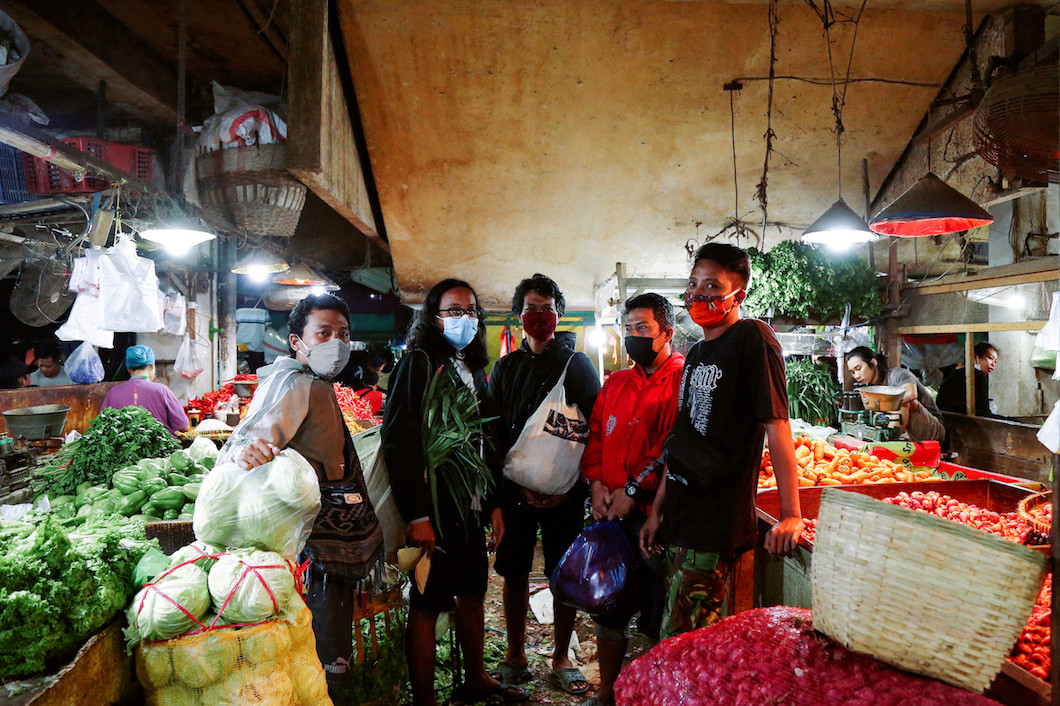Popular Reads
Top Results
Can't find what you're looking for?
View all search resultsPopular Reads
Top Results
Can't find what you're looking for?
View all search resultsIn volunteering, recognition is not the goal itself
It is essential that volunteerism is understood not as an “import” but rather as something very much part of the local fabric.
Change text size
Gift Premium Articles
to Anyone
V
olunteers around the world have played a very important role since the COVID-19 pandemic began and their contributions will continue to remain essential in Indonesia and throughout the world.
Amid increased interest in the role volunteerism could play in a post-pandemic society as an effective tool to achieve the Sustainable Development Goals (SDGs) Agenda 2030, it is important to hear the voices of experts of the sector. One of them is Retha Dungga, the cofounder of Indorelawan, the biggest platform in Indonesia on a mission to mobilize thousands of volunteers, enabling them to connect with a myriad of local organizations on the ground focused on achieving the “common good”.
Let’s start with the basics.
It is essential that volunteerism is understood not as an “import” but rather as something very much part of the local fabric.
It does not matter how we refer to it, “volunteerism is actually how Indonesians navigate the challenges of daily life, especially among those who have close relationships,” shares Retha.
To better understand volunteerism, we need to see it as a part of a continuum, as recently advocated by the United Nations Volunteers.
It starts with forms of reciprocity, mutual aid and self-help, and gets to other forms of help, informal or more formal and it is in the latter where Indorelawan makes a difference by connecting more than 170,000 volunteers to local organizations and initiatives on the ground.
While forms of local reciprocity and mutual help should be properly recognized for the importance they play in acting as local safety nets and for being essential components of community life wherever practiced, there is also a need to talk more about conscious and organized forms of volunteering.
“More dissemination of knowledge of the positive impacts of volunteer programs would be very beneficial to the volunteerism ecosystem” Retha says.
Indeed, recognizing volunteering efforts matters a lot and it is important to have “decisionmakers that are confident in implementing volunteer programs in their institutions”.
“If there’s acknowledgement in education institutions or the workplace that volunteering is an important and life-changing experience to hone empathy and collaborative skill in organizations that everyone should have, volunteering would grow in a big way,” she says.
Yet there are some caveats to recognition: it should not become a goal in itself: “Rewards for volunteering are good, if the metrics are clear. This can spur the enthusiasm of both volunteers and civil society organizations in developing volunteerism. However, don't let the enthusiasm of volunteering for recognition become too important and people forget the importance of achieving a social mission.”
The trick to getting policymakers on board might be to help them better understand the impacts of volunteerism, not only in society but also within the persons engaged in the act of volunteering. It is truly a learning experience that helps a person to grow.
On its effects at society level, there is no doubt that volunteering can do a lot “ to help achieve the SDGs goals, ranging from eradicating poverty and hunger, improving the quality of education and health, peace, improving terrestrial and marine ecosystems, promoting gender equality, as well as encouraging cities and settlements to become more decent living places” shares Retha.
On the changes at the personal level, around the world there is a mountain of evidence, covering the experiences of the private sector.
I am not referring to the most basic, often needless, forms of corporate volunteering like wall painting but instead those experiences where there is a sharing of expertise. It is here that the transformational aspect of volunteering happens.
So if it is essential to have more recognition of volunteering efforts to scale it up, understand its double potential, at society and personal levels, we need to make sure that volunteering truly works and for this greater effort must be initiated in investing in the capacity building.
“We need to understand that most organizations have not been able to invest exclusively in human resource development and tend to focus only on the execution of activities” explains Retha. “The goal is for organizations to create volunteer activities that not only meet social mission demands but are also creatively designed and consider scaling up the knowledge, character and networking of their volunteers.”
With more support to build the skills of volunteer managers, the social impact is going to grow exponentially and the personal dimension of the volunteering equation is going to benefit as well.
Then, if the impact grows and if those involved in the process grow as wells, then it will be easier to make a pitch to the state for funding and incentivize more people to volunteer.
“If there's a social work scheme in the private sectors governments, schools, or universities, it will create high demand for volunteer activities.”
Some countries have adopted formal legislation that promote volunteerism, bringing about positive results but wherever there is a gap between the law and its implementation, the results might be the opposite.
Retha insists there is no need for legislation as there are already laws in place on foundations and social organizations that are controversial to some extent. After all, “volunteering is a life changing experience that everyone should have to hone empathy and collaborative skills”.
***
The writer is cofounder of ENGAGE and writer on social inclusion, youth development, regional integration and the SDGs in the context of Asia Pacific










